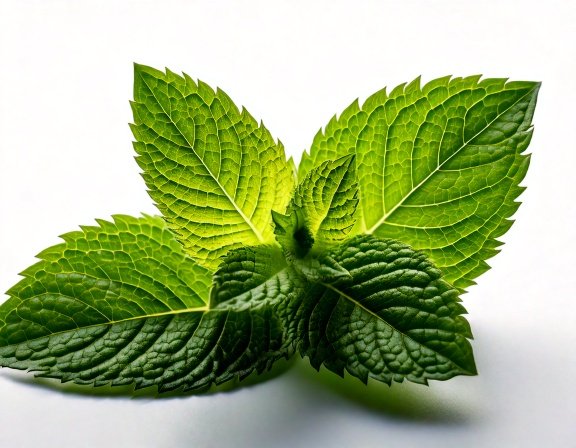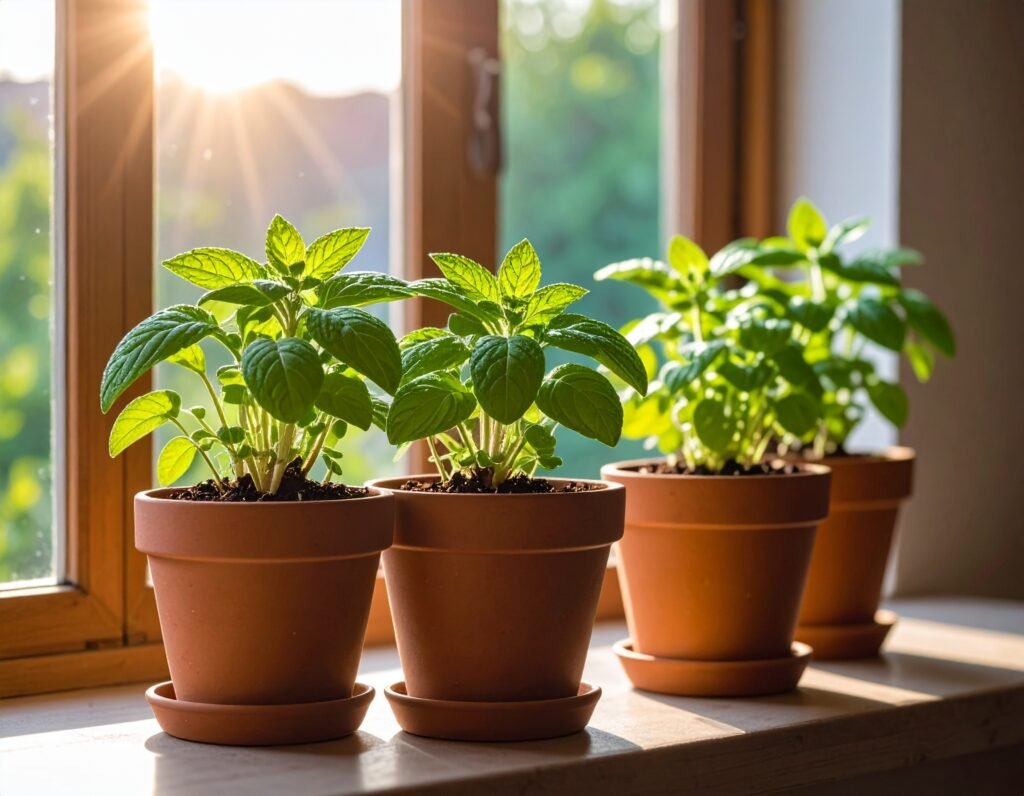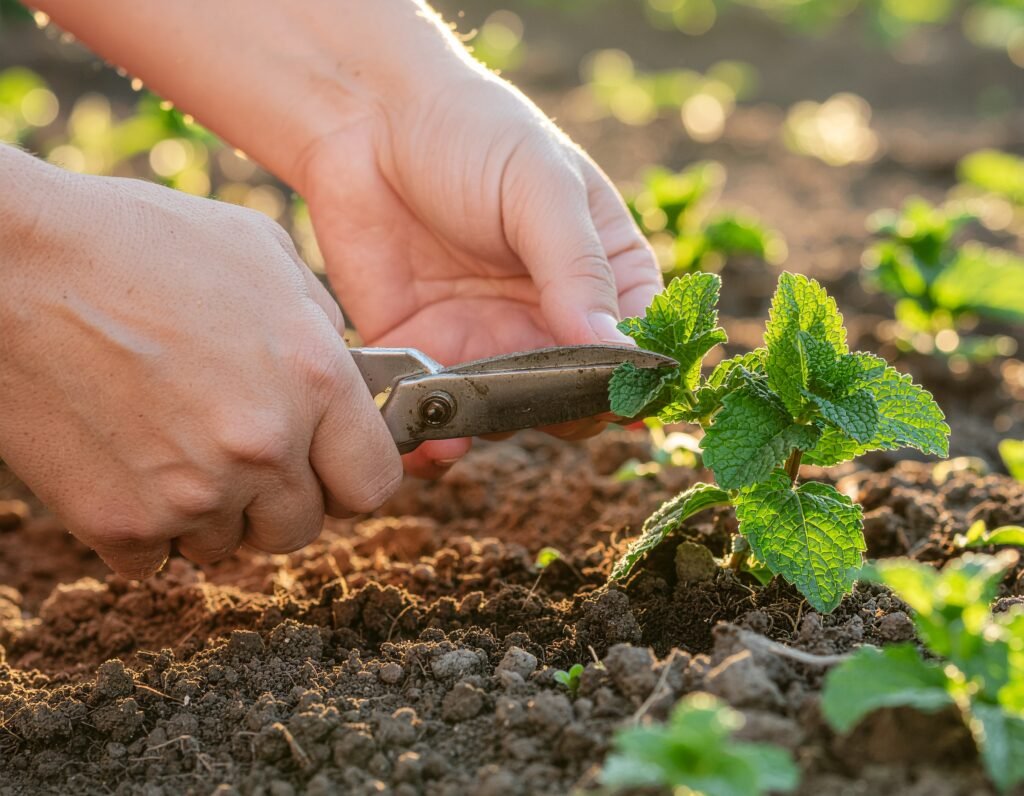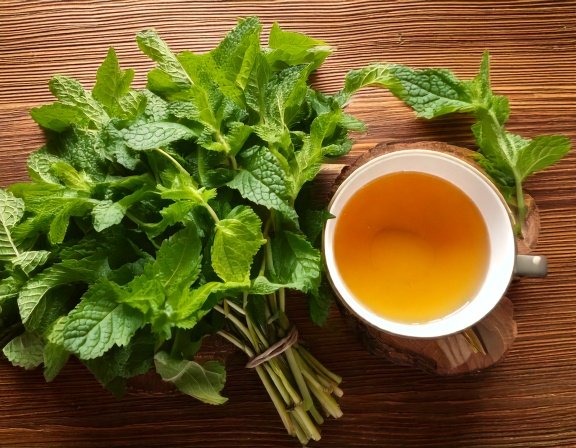
Peppermint for Digestion: How to Grow, Harvest, and Brew Tea for Natural Relief
Peppermint isn’t just a refreshing addition to your garden—it’s an ancient remedy trusted for digestive health. Whether you’re dealing with bloating, indigestion, or stomach discomfort, peppermint tea can offer gentle relief. This guide walks you through growing peppermint at home, harvesting at peak freshness, and brewing a soothing tea right in your kitchen.



Discover soothing recipes and brewing tips for peppermint and more. Download your printable kit!
Get the Guide
How to Easily Grow Peppermint at Home
Peppermint is hardy and versatile, thriving both indoors and outdoors with minimal attention. For healthy plants, provide nutrient-rich, well-draining soil and partial to full sunlight. Regular watering without over-saturation keeps peppermint flourishing.
Quick Growing Tip:
Plant peppermint in pots or containers—its vigorous growth and spreading roots can quickly overtake garden beds.



Convenient, pure, and potent—perfect for daily digestion support.
Shop Peppermint Tea
Harvesting Peppermint for Maximum Potency:
For the highest concentration of beneficial compounds, harvest peppermint early in the morning after dew has evaporated. Snip stems just above leaf nodes, encouraging continuous leaf production throughout the growing season.
Keep harvested peppermint leaves fresh by wrapping them in a damp paper towel and refrigerating or drying them for long-term storage.
Brewing Peppermint Tea: A Digestive Ritual:
Brewing peppermint tea to soothe digestion is simple. Use fresh or dried leaves steeped in hot (not boiling) water to preserve the herb’s beneficial oils.
- Rinse and lightly crush leaves (fresh or dried).
- Steep in hot water (200°F / 93°C) for 5–7 minutes.
- Cover your cup while steeping to retain essential oils.
- Strain and sip warm after meals.
Active Compound:
Menthol – Peppermint’s main active compound, responsible for its cooling sensation and digestive relief properties.
Unlock Natural Weight Support—Okinawa Style
Inspired by centuries-old Japanese wisdom, Okinawa Flat Belly Tonic blends rare botanicals for your best self.
Order Okinawa Tonic NowThis herbal recipe is shared for educational purposes only, based on traditional use and available sources. It is not medical advice. Please consult your healthcare provider before use, especially if pregnant, nursing, or on medication.
Did You Know?
Peppermint has been valued since ancient Egypt—peppermint leaves were even found preserved in Egyptian pyramids dating back to 1000 BC!
Ready to Feel Better Naturally?
Discover more herbal remedies, gardening insights, and natural health tips delivered straight to your inbox. Join the Health Intel Daily community today!
The content on this website is for informational purposes only and is not a substitute for professional medical advice, diagnosis, or treatment. Always seek the advice of your physician or other qualified health provider with any questions you may have regarding a medical condition.
1. McKay, D. L., & Blumberg, J. B. (2006). “A review of the bioactivity and potential health benefits of peppermint tea (Mentha piperita L.).” Phytotherapy Research.
2. National Center for Complementary and Integrative Health. “Peppermint.” nccih.nih.gov/health/peppermint-oil
3. Memorial Sloan Kettering Cancer Center. “Peppermint.” mskcc.org/cancer-care/integrative-medicine/herbs/peppermint